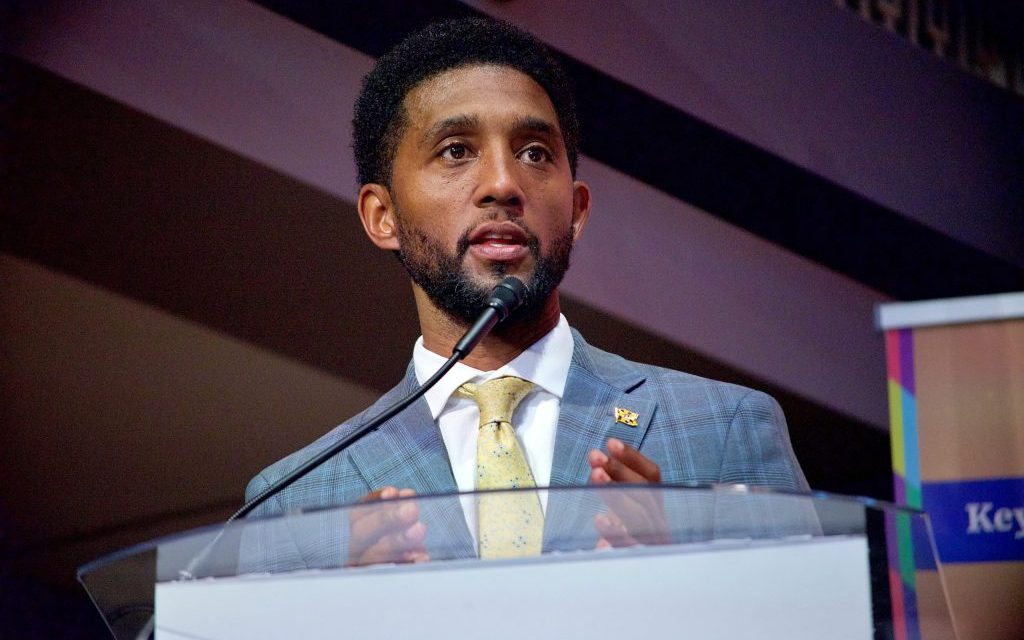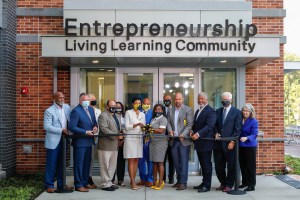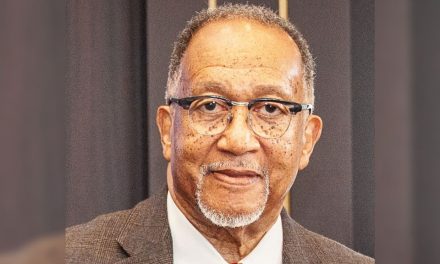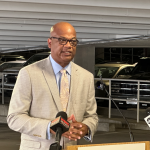By Megan Sayles
AFRO Business Writer
msayles@afro.com
The third annual Baltimore Together Summit will come to Baltimore Center Stage on Nov. 12. The gathering, organized by the Baltimore Development Corporation, assembles members of the public and community, government and business leaders to examine Baltimore’s progress in fostering a stronger and more inclusive economy.
Following the opening day of the summit, a number of workshops will be held across the city from Nov. 13 to 15, covering topics, like youth entrepreneurship, the transformation of West North Avenue, economic opportunities in the city’s film and television industry and resources for small business growth.
“We have an opportunity to tell our own story about the trajectory of our city, and it’s time for us to take our own story back,” said Brennan A. Murray, managing director of business development and marketing for BDC. “We have to stop talking about our city like it’s the worst place in the world. We live here. If we talk about it like it’s the worst place in the world, why would anyone think it isn’t?”
The Baltimore Together Summit arose out of Baltimore’s Comprehensive Economic Development Strategy (CEDS), a five-year blueprint for regional economic development that enables the city to access federal funding and technical assistance for growth initiatives. In the plan, one of the strategies identified to inclusively advance the city’s economy was holding an annual gathering of stakeholders.
In its first iteration, the summit was only one day with a little less than 200 people in attendance. The second year, the gathering added two days of break-out sessions to engage Baltimoreans across the city, drawing more than 1,800 visitors virtually and in person. Murray said BDC expects turnout to exceed past years.
Day one of this year’s summit will celebrate the launch of the Baltimore Economy Dashboard, which provides essential metrics about the city’s economic landscape, and the release of Downtown RISE, a 10-year vision to reimagine downtown Baltimore. It will also address the city’s vacant housing crisis and ongoing development in West Baltimore, which has faced decades of disinvestment.
Much of the aforementioned community development is being led by the West North Avenue Development Authority (WNADA), which is participating in the summit. The economic development authority was established by the Maryland General Assembly in 2021 to enhance Coppin State University (CSU) and the neighborhoods of West Baltimore.
“The lack of disinvestment that has gone on for decades has been unfortunate because of the high interest in investing in development around Johns Hopkins University, downtown and the harbor. Most investment has happened in the ‘White L’ instead of the ‘Black Butterfly,’” said Executive director Chad Williams. “WNADA is a tool for the state of Maryland to bring equity and parity to economic development in West Baltimore.”
The state has provided $20 million in funding to the authority, which it then uses to deliver grants to small and minority developers and businesses to revitalize neighborhoods. Recipients of WNADA’s grants receive full upfront payment for their work.
Some of the authority’s most recent endeavors include a site plan for a grocery store on the 3100 to 3200 block of West North Avenue, awarding $3.5 million for developers to acquire vacant homes on the 2700 to 2900 block and investing in housing and down payment assistance for students, staff and faculty to live nearby CSU.
On Nov. 15, WNADA will host a panel at Baltimore Unity Hall from 10 a.m. to 11:30 a.m. for people to learn more about the authorities investments in economic development, housing, transportation, community development and public safety.
“Everything doesn’t happen downtown and at the harbor. Development happens throughout the city, not just in clusters or in certain neighborhoods,” said Williams. “Most of the time, people miss out on business opportunities or partnerships to advance economic development when they’re only focused on the things that look good at the time. Right now is the best time to invest in West Baltimore.”
Another focus area for the Baltimore Together Summit is capital access for small businesses. The Baltimore Business Assistance and Support for Equity (BASE) Network, a coalition of 15 organizations that was created to support Black-, Indigenous-, and people of color- (BIPOC) owned businesses, will host a workshop on Nov. 14 from 3 p.m. to 6 p.m. at Impact Hub, a partner of the BASE Network.
The session will highlight opportunities for resources to grow and scale small businesses.
“In over a decade of working alongside entrepreneurs, we’ve seen that it is a range of things that people need, and they include education, advocacy, network-building and capital access,” said Michelle Geiss, network director and cofounder of Impact Hub. “It’s really important for people to have trusted relationships that they can lean on at any stage of their business, whether it’s start-up or scaling or anything in between. That helps with a lot, including just being able to navigate through the range of resources out there.”
During the workshop, Impact Hub will unveil data on America Rescue Plan Act (ARPA) funding, which delivered $641 million to the city of Baltimore. The findings will uncover how diverse the distribution of ARPA grants were, including information on the racial breakdown and geographic impact.
Geiss noted that small businesses are paramount not just to the city’s economy but to neighborhoods, quality of life and identity.
“The ingredient that is so vital is one that we have in abundance, which is really committed, creative and talented business owners who are ambitious and want to grow. They hold a real love of the city, their clients and the work that they do,” said Geiss. “You can’t manufacture that.”
The post Baltimore Together to tackle community development and small business growth at third annual summit appeared first on AFRO American Newspapers.



















